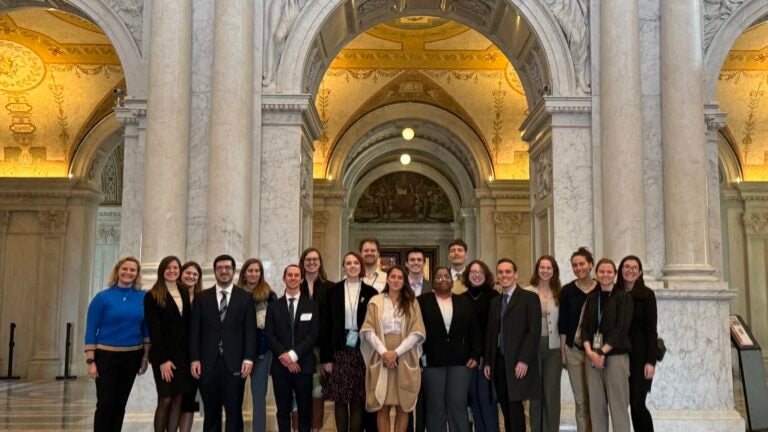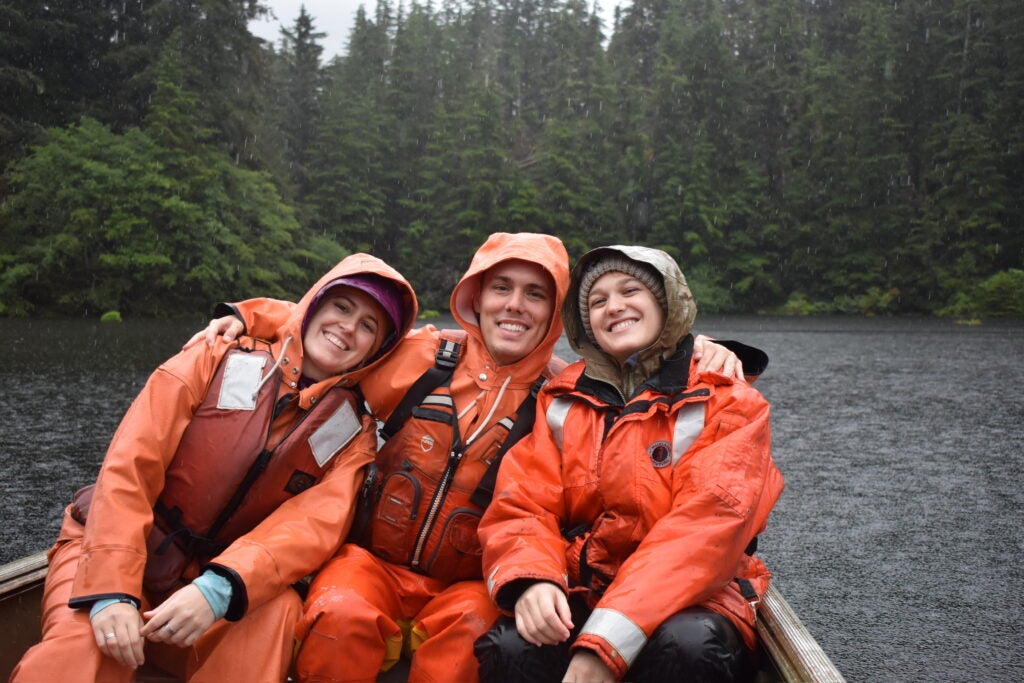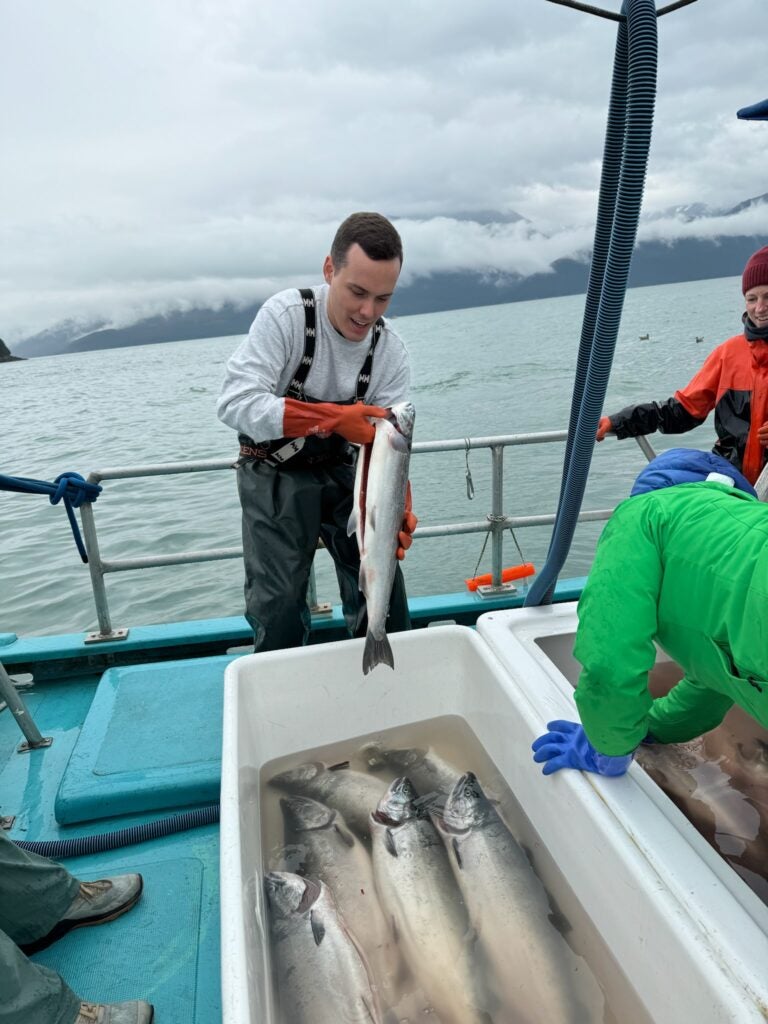
2024 Knauss Legislative Cohort
Easy Tips to Help Translate Your Science into Policy
As scientists, we hope that our work makes a meaningful difference. We are conditioned to understand how impactful our work is by the number of citations a paper gets or the impact factor of a journal we publish in. But beyond the walls of academia, there are countless policymakers striving to translate the growing number of published research articles into effective policies. These policies affect millions of people and have the power to shape the future of our country. When we talk about impact, we should make sure that our research gets beyond our academic circles and into the hands of managers and policymakers.
During my Knauss fellowship, I was placed on the House Natural Resources Committee’s Subcommittee on Water, Wildlife, and Fisheries. Our jurisdiction covers topics including national wildlife refuges, sustainable fishing, wildlife protection, climate resiliency, habitat restoration, coastal resource management, marine mammals, and endangered species. As one of two staff on the subcommittee, I’ve been integrated into each step of the legislative process, from bill conception, to overseeing committee hearings and markups, to managing House floor debates. In this position, my role was to provide scientific analysis and policy recommendations. This involved performing legislative text analysis, authoring legislation and letters, writing bill amendments, drafting memos for Members, and writing the Ranking Member’s statements to deliver publicly during hearings.
Our committee acts as a nexus between Member offices, Federal Agencies, and researchers. During this year’s fellowship, I’ve had hundreds of meetings with stakeholders spanning more topics than I can count. In this experience, I’ve been able to see what makes a meeting successful from the perspective of someone who works to help shape environmental policy. I’ve compiled my list of easy (and perhaps common sense) tips to help maximize the effectiveness of your meeting if you are a scientist trying to share important or new science with congressional staff:
- Communicate your research: While it may seem obvious, half the battle is getting your research in front of people with the power to take that knowledge and use it to shape policy. This can be indirect communication, such as writing a blog post or a newspaper article. As staff, we are expected to stay up to date on the latest science and topics. However, this method hinges on the right person finding your article and being able to understand it. The most effective way to share your research is through direct communication with an office or committee. While this may seem intimidating, don’t let it be. Remember that staff want to be up to date on the latest and greatest science. Your meeting does NOT have to be in person in DC; Zoom calls are equally as welcome. 15-30 minutes of a staff member’s time is all you need.

Claudia, Tanner, and Kesten in the field learning about the latest conservation efforts. - Make your science digestible:
The staff you meet with will most likely not be an expert on your topic. They might not even have any previous exposure to what you’re sharing. If you want them to buy into the science that you’re sharing, make sure that you can explain the science in plain language. Lose the jargon, lose the acronyms, and share what your research means to a general audience. And if the person wants to dive deeper into the science, you can be ready, but don’t assume that the people you meet with are at the same level of understanding that you are. - Connect your science to other disciplines: Whether your research is interdisciplinary or not, the results of the science will impact more than just the science. For instance, a research paper on kelp conservation efforts doesn’t just impact biodiversity, it will also impact local fishing economies and community resiliency. Bridging the gap between your topics and others will help strengthen your argument that this is worthwhile. Researching previous topics and legislation that an office has sponsored will help you connect your research back to topics the office cares about.

Tanner learning about the environmental, economic, and social aspects of Alaska’s salmon fishery. - Go in with an ask: This is arguably the most important thing to remember. After you’ve shared your research and convinced the policymaker of its importance, you need to seal the deal. Leave the staff member with an ask. This could be supporting a piece of legislation, asking for greater funding for a specific agency program, making a change to a current law, or leading a congressional letter. Going into a meeting and sharing your research is important, but if the policymaker doesn’t have a path forward for continuing to advance your policy concerns once you leave, that’s where it will stop.
- Send a summary email: Finally, thank the staff for their time and send a follow-up email. In this email, summarize your meeting discussion, share any materials you wish for them to have, and reiterate your ask. This email will serve as their point of contact when they want to remember what your meeting was about or when they want to follow up with you sometime in the future.

Meeting with policymakers sounds like a daunting and scary task. You might not want to bother them or take up too much of their time, or you don’t know if your research is important enough. Get all those thoughts out of your head. Office and committee staff are there to make sure that their office is well versed on the latest science, and they welcome the chance to make sure that they are on top of their topic area for their boss. So, take this chance to share your research- you never know what you can change.